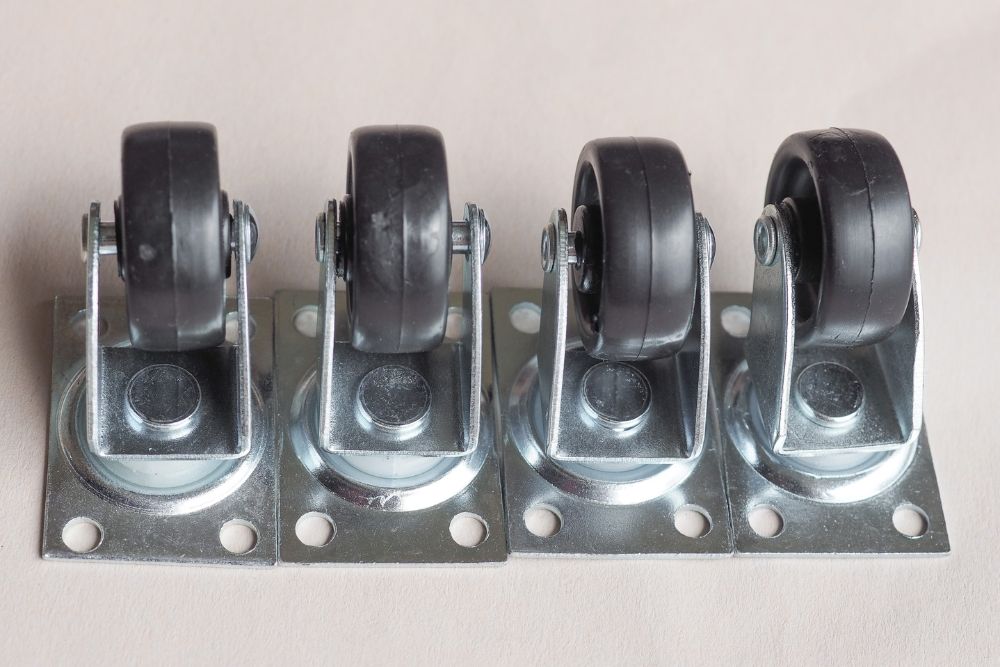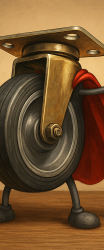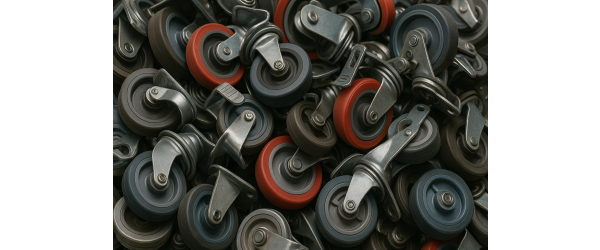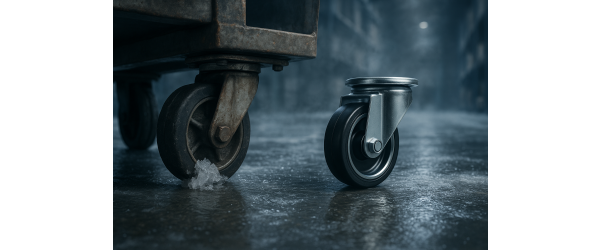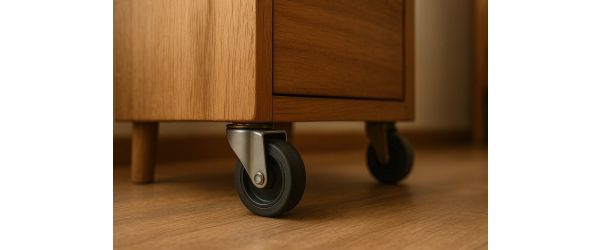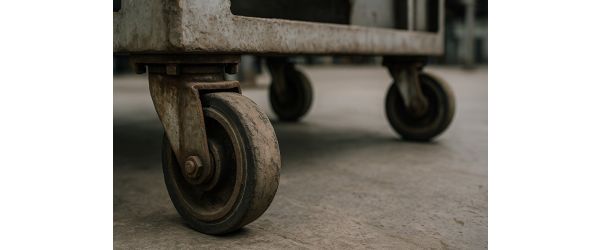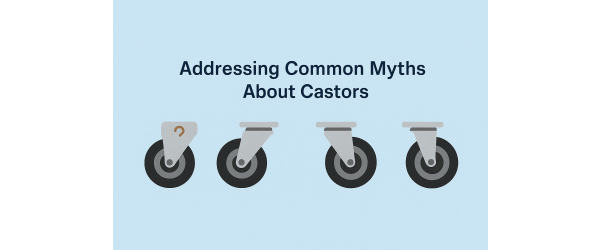Swivel castors are a critical component in many applications, providing the flexibility to move equipment and furniture smoothly in any direction. From industrial trolleys and medical equipment to office chairs and retail displays, choosing the right swivel castors can make a significant difference in manoeuvrability and user experience. In this guide, we’ll explore what to consider when selecting swivel castors to ensure optimal performance and movement.
1. Understanding Swivel Castors
Swivel castors differ from fixed castors because they allow for 360-degree rotation, enabling the attached item to change direction effortlessly. This makes them ideal for environments where smooth and precise manoeuvrability is essential.
Benefits of Swivel Castors:
- Easy Steering:
With their ability to rotate freely, swivel castors make it easier to steer equipment around obstacles. - Improved Flexibility: Unlike fixed castors that only move in a straight line, swivel castors provide greater movement flexibility, especially in tight spaces.
- Reduced Strain:
Swivel castors reduce the effort required to push or pull heavy loads, improving user comfort and reducing the risk of injury.
2. Key Factors to Consider When Choosing Swivel Castors
To get the best performance out of your swivel castors, it’s important to consider the specific requirements of your application. Here are some key factors to keep in mind:
a. Load Capacity
The load capacity of your swivel castors is crucial to ensuring they can support the weight of the equipment or furniture they’re attached to. Overloading castors can cause them to fail or become difficult to manoeuvre.
- Tip:
Check the combined load capacity of all castors on the item. For example, if you have four swivel castors, divide the total weight by four to ensure each castor can handle its share of the load.
b. Wheel Material
The wheel material of your swivel castors can impact both manoeuvrability and surface protection.
- Hard Wheels (e.g., metal or plastic): Suitable for smooth, indoor surfaces, offering lower rolling resistance.
- Soft Wheels (e.g., rubber or polyurethane):
Ideal for uneven or delicate surfaces, providing better grip and reducing the risk of floor damage.
Choosing the appropriate wheel material can enhance manoeuvrability and protect your flooring.
c. Bearing Type
Bearings play a significant role in how easily swivel castors rotate and move.
- Plain Bearings:
Basic and low-maintenance, suitable for light to medium loads. - Ball Bearings:
Offer smoother rotation and are ideal for heavy loads or high-frequency use.
If you need your swivel castors to turn quickly and effortlessly, opt for ball bearings for superior movement.
3. Consider Your Environment
The environment where you’ll be using the swivel castors can affect their performance. Factors to consider include:
- Flooring Type:
Smooth surfaces may benefit from hard wheels, while rough or uneven surfaces require soft, shock-absorbing wheels. - Exposure to Elements: If your castors will be used outdoors or in environments with moisture, consider corrosion-resistant materials like stainless steel or zinc-coated castors.
- Temperature Conditions: Extreme temperatures can affect certain wheel materials, causing them to become brittle or less effective.
Tailoring your swivel castors to match the conditions of your environment ensures optimal performance and longevity.
4. Locking Mechanisms for Added Stability
Some swivel castors come with built-in locking mechanisms to prevent unwanted movement when stationary. This feature is particularly useful for items that need to stay in place during use, such as workbenches or medical trolleys.
Types of Locks:
- Wheel Brakes:
These stop the wheel from rotating, providing stability when needed. - Directional Locks: These lock the castor in a fixed direction, allowing for straight-line movement when required.
If your application demands both manoeuvrability and occasional stability, consider swivel castors with locking features.
5. Noise Reduction
For applications in quiet environments, such as hospitals, offices, or libraries, noise levels are an important consideration. Swivel castors with soft, rubberised wheels or noise-reducing bearings are ideal for minimising sound during movement.
Tip:
Look for castors specifically designed for low-noise operation if sound levels are a concern.
6. Maintenance and Durability
Regular maintenance can extend the life of your swivel castors and ensure optimal performance. Here are some quick tips:
- Inspect Regularly: Check for signs of wear, rust, or debris build-up that could impede movement.
- Lubricate Bearings: Apply lubricant as needed to keep bearings functioning smoothly.
- Replace Worn Wheels: If the wheels show signs of flattening or excessive wear, replace them to maintain ease of movement.
Durable swivel castors that are well-maintained provide consistent manoeuvrability and reliability.
Conclusion:
Choosing the right swivel castors can make a significant difference in the manoeuvrability and performance of your equipment. By considering factors like load capacity, wheel material, and your specific environment, you can ensure your swivel castors meet your needs. At Castors Online, we offer a wide selection of high-quality swivel castors designed to enhance movement and flexibility for any application.
